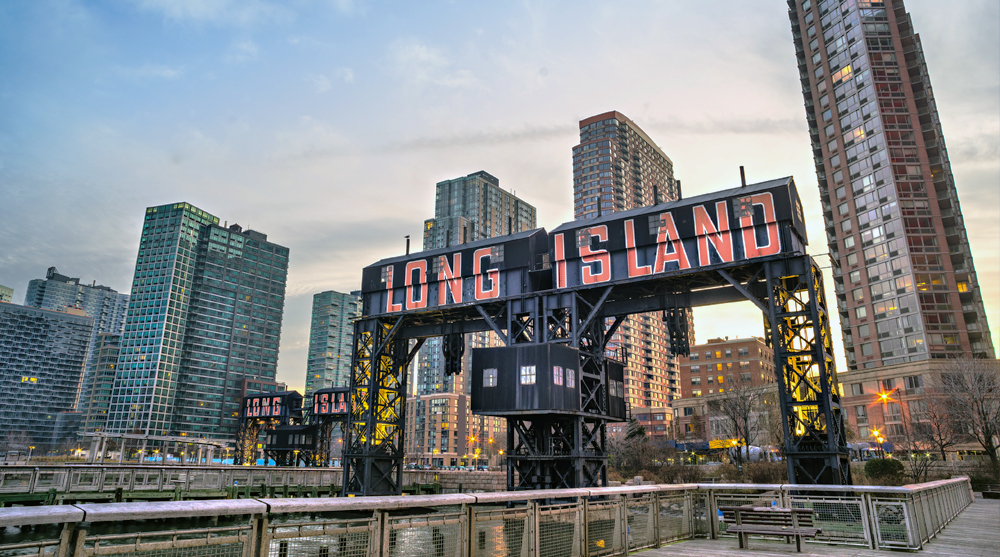Buildner architecture competition organisers, in partnership with ARCHHIVE Books, would like to present a preview article from an upcoming print publication “What is Affordable Housing”?
By Daniel Wu, Conrad Egan, Mike Chen
Amazon’s decision to move to New York City will mean an influx of thousands of well-paid technology workers, exacerbating the city’s housing crunch. Some estimate a nearly 50% spike in housing values in specific neighborhoods after the Amazon move.
But this challenge also offers an opportunity — for technology workers looking to fall in love with a problem, consider affordable housing for three reasons: (1) it’s a critical social good, (2) affordable housing will grow scarcer, and (3) there’s opportunity for improvement.

Long Island City, NY has been chosen as one of two new headquarters for Amazon on the east coast of the USA.
1) More affordable housing can cause positive impact
Instead of unwittingly contributing to rising rents, technology workers could use their skills to give back. Every year, the U.S. economy, some economists estimate, is losing $1.6 trillion due to high housing costs. Access to housing in great neighborhoods also means access to better chances of financial success. Poor children who move to high-opportunity areas end up earning 31% more later in life.
2) Affordable housing will grow scarcer
Amazon’s move is a sign of what’s to come. In developed countries like the U.S., the urban population reached 80% of the total population in 2015. Globally, 1 billion urban dwellers will become consumers by 2025, injecting $20 trillion into the economy a year. The world will need $78 trillion in infrastructure investments -- including those in affordable housing -- to meet this growth. Without intervention, 3 billion people will live in urban slums by 2050. And as resources become scarcer and more expensive, cities, and in particular, housing in cities, become important levers in helping people save money; cities consume 75% of natural resources. As an industry, housing’s social importance will appeal to Millennials. They are set to outnumber Baby Boomers by 2019 and, more than other groups, rate positive social impact as the top function of business.
3) Technology still has a huge role to play
Top housing industry players, according to the McKinsey Institute, have been spending less than 0.9% of their profits on R&D, while technology companies, like the Googles or Amazons, spend nearly 10% on average. Out of McKinsey’s list of 22 sectors ranked on levels of digitization, construction is 21st, only ahead of farming.
In conclusion: jump on this rocketship but seek first to understand
There’s a reason Amazon invested in a housing startup and is moving into healthcare. The next big opportunities, according to ex-AOL CEO Steve Case, are going to be in “third wave” industries that have social impact, like cities and healthcare. Efforts to use technology to increase affordability, as Dan has detailed in the online publications The Multifamily Executive and Shelterforce, are underway, but how the future will look is unclear.
But the best solutions, as Steve Case also notes, will come from first seeking to understand. Build partnerships with diverse stakeholders left out of technology discussions but closest to the problem: policymakers, nonprofits, and residents from underserved communities. Fall in love with the problem, not your technology.
For the leaders of Amazon and its new technology workers: this move is an opportunity to meet your neighbors and give back to your community.
Dan Wu is the CEO and lead innovation advisor of Joyful Ventures, empowering social impact executives to create financially sustainable, high-growth ventures.
Conrad Egan is an affordable housing expert. He worked under the Secretary of U.S. Department of Housing and Urban Development Henry Cisneros. He’s also served as the executive vice president of the National Housing Partnership, executive director of the Congressional Millennial Housing Commission, and, most recently, as CEO of the National Housing Conference.
Mike Chen has served as a senior software developer at leading technology companies. He's interested in technology ethics and fostering empathy across diverse teams.
ARCHHIVE BOOKS
ARCHHIVE is an annual print publication expanding on the ideas presented in Buildner’ online architectural design competitions. Buildner architecture competition organisers is a generator of new ideas, conceived by a worldwide think tank, for tackling challenging design issues. It often works with civic, industry, or government partners to initiate its competitions, some of which are conceptual while others are intended to be built.
Each issue of ARCHHIVE will bring together architects with startups, entrepreneurs, developers, and problem-solving organizations which tackle these same global issues, often in ways other than building. ARCHHIVE merges the wealth of Buildner’ novel architectural design proposals, with complementary ideas in entrepreneurship, policy, and technology.
Top 3 Reasons Why You Should Enter Architecture Competitions
Curious about the value of architecture competitions? Discover the transformative power they can have on your career - from igniting creativity and turning designs into reality, to gaining international recognition.
Learn more


























